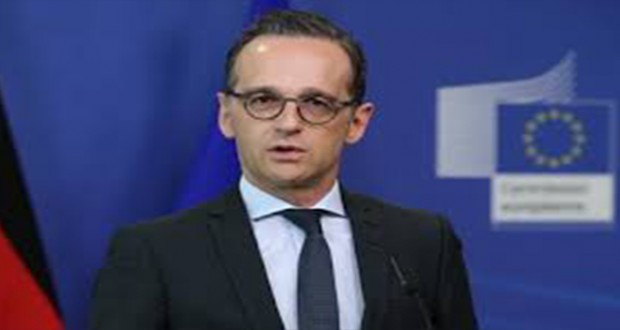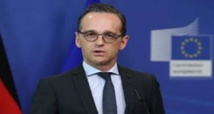Maas made an unannounced visit to Libya on Sunday, landing in the coastal city of Zuwara to meet with the head of Libya's UN-backed government, Fayez Serraj.
Libya has at least two competing administrations: Serraj's Government of National Accord (GNA), based in the capital Tripoli, and another in the eastern city of Tobruk allied with Khalifa Haftar, the commander of the self-styled Libyan National Army.
The oil-rich country descended into anarchy following the 2011 revolt that toppled long-time dictator Moamer Gaddafi.
Haftar has been trying since April to capture Tripoli from the internationally recognized GNA. The campaign has since descended into a stalemate.
Several armed militias are also active in Libya. Regional players such as the United Arab Emirates, Turkey and Egypt are also involved, as are Russia, China, France and Britain in their role as permanent members of the UN Security Council.
Diplomatic attempts to mediate between the two governments have so far failed. Germany wants to mediate in the conflict and set up an international conference. Three preparatory meetings have already taken place.
In September, German Chancellor Angela Merkel warned that the conflict in Libya could become a proxy war like in Syria.
Libya is also one of the most important transit countries for migrants on their way to Europe. According to estimates by the International Organization for Migration (IOM), between 700,000 and 1 million refugees live in Libya.
In addition, more than 300,000 Libyans have been displaced from their homes as a result of fighting in the country.
Zuwara is a small coastal town about 120 kilometres west of Tripoli. Mass' visit was not announced in advance for security reasons.
--------------------------------------------------------------------------------------------









 Home
Home Politics
Politics











